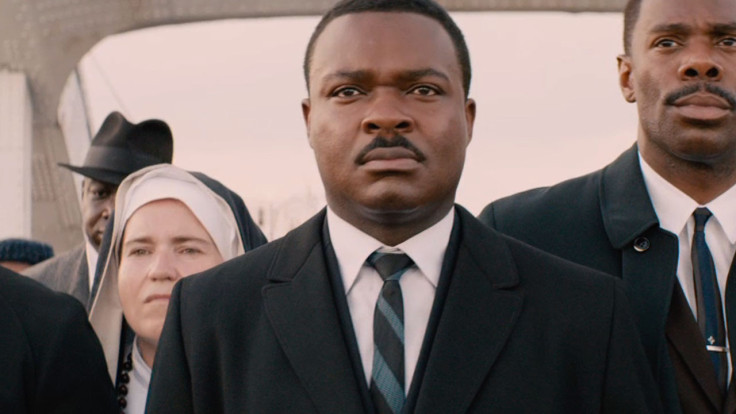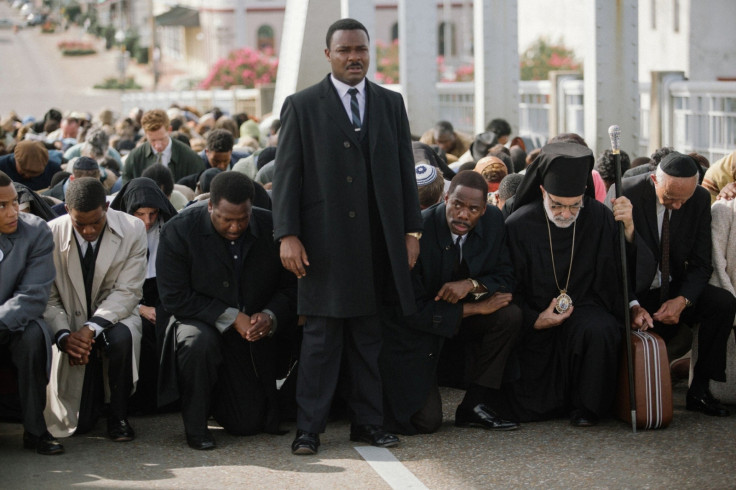Selma review: David Oyelowo is magnificent but Martin Luther King biopic lacks complexity

There's nothing Hollywood seems to love more than a good biopic, especially one of a beloved national treasure. Which is why the fact that a drama about Martin Luther King has never been made before just strikes me as plain odd.
Perhaps he is too revered a figure, or despite his monumental achievements the man himself doesn't make for good drama? That might explain why in Ava DuVernay's film, Selma, she wisely decides to focus on one flash point in the civil rights movement rather than take us through the life and death of Dr King.
Selma
Director: Ava DuVernay
Stars: David Oyelowo, Tom Wilkinson & Carmen Ejogo
Rating: 12A
The scene is Selma, Alabama in 1965. King has already delivered his "I have a dream" speech and the Civil Rights Act of the previous year has ended racial segregation in public places. The problem is that in the southern states, the whole bureaucratic barrel is rotten. Almost 200 years of institutionalised racism means that black people are being hindered every way they can from exercising their rights.
King's plan is a peaceful march from Selma to the state capital Montgomery, though he knows that such a demonstration will never be tolerated by Alabama's vindictive governor George Wallace (Tim Roth in default villain mode). And so the police tear into the protesters with clubs, horses and tear gas, to the shock of millions of Americans watching the carnage unfold on their TV sets.
DuVernay does a terrific job in building up the tension of 'Bloody Sunday', as the activists trudge across the bridge with a mix of trepidation and determination. But all this leads to a botched denouement, with the violence that unfolds on screen never shocking enough to really rile the senses.
Many crusaders are beaten and bludgeoned; but it's all covered in quick cuts featuring slow-mo shots and muted sound. Rather than intensify the action, this tired trick only softens the blows and makes the violence easy to consume. Instead of subtly building up the anger and injustice, you're lazily told at key points to feel outraged.
It's a problem with the film as a whole, which paints a simplified black and white tale of good activists versus evil government, robbing any sense of complexity or drama. None more so is this the case than Tom Wilkinson barely resembling President Lyndon B. Johnson, both in appearance and in how the troubled, conflicted president really acted during the civil rights movement. Here he is unfairly portrayed as a weak man who only switches sides when he realises the tide is turning against him.

The only person who contains depth is unsurprisingly King himself. Of course we are shown a man with strong convictions and resolute determination, but DuVernay also portrays him as an astute political figure who understands that how a message is delivered is just as important as the message itself.
From the very first shot, where we see him dressing up smartly and practising one of his speeches in front of the mirror, we see a man who understands the power of presentation.
Selma is deliberately targeted as he knows he is more likely to get a response from the racist governor and sheriff, and there is a daring suggestion lurking underneath the film that for how terrible the police brutality was during the protest march, King knew he needed something of that scale to happen in order to get the majority of the American public on his side.
While the emphasis not just on King's sermons but his strategy should be applauded, his speeches still play a vital role. British actor David Oyelowo is absolutely magnificent throughout as King, carrying the icon's charm and charisma, and vigorously channelling it into the many mesmerising sermons delivered throughout the film.
Instead of subtly building up the anger and injustice, you're lazily told at key points to feel outraged
King's masterful oratory might be well known, but it is still a remarkable feat that DuVernay and Paul Webb's penned speeches (they weren't allowed to use the originals) and Oyelowo's performance so perfectly capture the power and passion of his words.
As well as the sermons, it's the quieter moments where Oyelowo really excels. One scene where King has to comfort a father whose son was murdered by police officers is particularly heart-breaking, as well as a crucial moment on the Edmund Pettus Bridge.
Here, King has to make an on-the-spot decision about whether to proceed with the march, and with just a close-up of his solemn expression you see his inner struggle; a man who both feels the weight of the world on his shoulders, but understands what he must do in order to prevail.

© Copyright IBTimes 2025. All rights reserved.






















